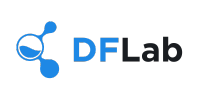
At DFLab, we are committed to pushing the boundaries of data privacy and data security through continuous research and innovation. One of our recent projects brought us face-to-face with a significant challenge: ensuring fair and secure node selection within decentralised networks where all nodes have uniform computational capabilities. This challenge inspired the creation of our latest solution: the Uniform Node Confidence-Based Scoring Consensus, or UNCSC.
Understanding the Challenge
Decentralised networks rely on consensus mechanisms to ensure that all nodes agree on the state of the network. Traditional consensus mechanisms like Proof of Work (PoW) and Proof of Stake (PoS) have been effective but come with their own set of issues:
- Proof of Work (PoW). Requires significant computational power, leading to high energy consumption and potential centralisation of mining power in regions with cheap electricity.
- Proof of Stake (PoS). Depends on financial stakes, which can lead to wealth centralisation and the “Nothing at Stake” problem.
These mechanisms are not ideal for networks where nodes have uniform computational power but may differ in other aspects like storage capacity. We needed a new approach that ensures fair and secure node selection without favouring nodes based on computational strength or financial stake.
Introducing UNCSC
The Uniform Node Confidence-Based Scoring Consensus (UNCSC) is our innovative solution designed specifically for uniform decentralised networks. UNCSC evaluates and ranks nodes based on multiple predefined metrics, including reliability, security practices, network participation, peer endorsements, and adherence to standard protocols. This ensures that the most trusted nodes are selected for critical tasks, enhancing the network’s overall security and reliability.
How UNCSC Works
Here’s a simple explanation of how UNCSC operates, using an analogy.
Imagine you are a teacher in a school where every student has the same academic potential but different levels of participation, homework submission, and peer feedback. As a teacher, you want to assign a class representative who is reliable and trusted by their peers.
- Assigning Weights. You assign weights to various factors such as class participation, homework quality, peer feedback, and adherence to school rules.
- Participation: 30%
- Homework Quality: 25%
- Peer Feedback: 20%
- Adherence to Rules: 15%
- Security Practices: 10%
- Normalising Scores. Each student’s performance in these areas is normalised to ensure they are comparable on a common scale.
- Calculating Confidence Scores. You calculate a confidence score for each student by summing up their weighted scores in each area.
- Ranking Students. Based on their confidence scores, students are ranked. The highest-ranked student is chosen as the class representative.
- Adjustments. To ensure fairness, scores are adjusted and scaled, and students are grouped into performance zones to compare similar performers.
- Final Selection. The top-ranked students are reviewed, and the best performer is selected. If there is a tie, additional criteria like raw scores are used to make the final decision.
Why UNCSC Is Important
UNCSC ensures that node selection in decentralised networks is fair and secure, even when all nodes have the same computational power. This approach:
- Prevents centralisation by not relying on computational strength or financial stake.
- Enhances security by selecting the most reliable and trusted nodes for critical tasks.
- Promotes fairness by using a comprehensive evaluation system that considers multiple factors.
What’s Next?
We are excited about the potential of UNCSC and are working on implementing it in various real-world scenarios, from decentralised networks to IoT, edge computing environments, and of-course in our flagship project in work, Roof’s network. Our goal is to test and refine UNCSC to ensure it works efficiently and securely for everyone.
At DFLab, we believe that UNCSC represents a significant advancement in maintaining fairness and security in decentralised networks. We look forward to sharing more updates with you as we continue to develop and improve this groundbreaking technology.
Stay tuned for more updates on UNCSC and our ongoing projects!
